Table of Contents
1. Why Write a Zombie Movie?
Zombie movies can send political messages, highlighting the contemporary socio-political climate by, for instance, imagining how our society would react to such a catastrophic event. They encourage writers and their audiences to ponder on, for example, the divisions, unity and primal instincts that might be unleashed within society by a zombie outbreak.
So to write a meaningful zombie movie, ask yourself what the zombies in your screenplay could represent. Then ask what you want the audience to take from it. Are they solely there for the fear factor? Or can they symbolise or represent something else? Once you know the answers to these questions it will be easier to build your story in an original way.
As we’ve highlighted, the zombie movie is hardly original territory. So in order to write an original story that captivates an audience and stands out in the marketplace, you should have a distinct and meaningful reason for why you want to write a zombie movie in the first place.
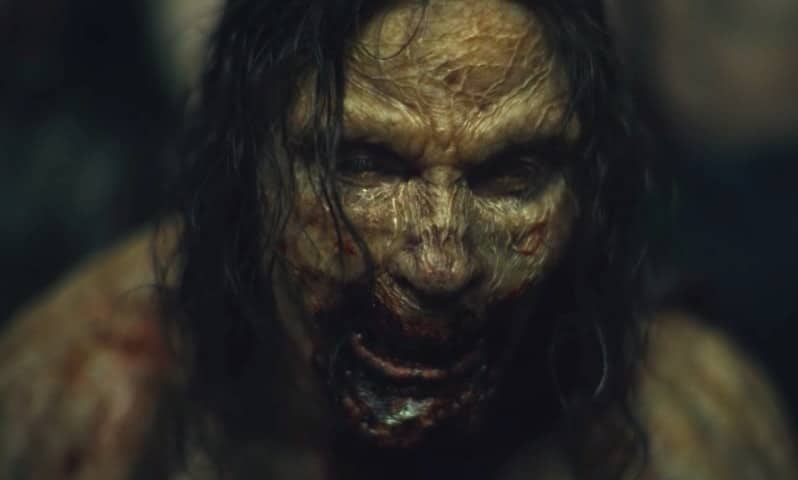
2. Creating Your Zombie
The next step would be to figure out what a zombie is to you. As mythical creatures, they can really look and act in any way you want them to. This can be a key factor in writing an original zombie movie because despite their traditional appearance there are no real rules on what a zombie can or cannot do.
Of course, there are some typical standards: zombies are the undead, eat humans, and being bitten or scratched by them often means turning into one of them. Still, there are many ways to make an original monster whilst keeping within the tradition.
Zombie Appearance
One way to set your zombie characters apart is through their appearance. Most zombie films feature creatures with rotting skin and rotten teeth, who snarl and either walk incredibly slowly or with animalistic speed. However, some films have done things a little differently and stand out against the majority.
- The Girl With All The Gifts, for example, features both conventional zombies, and ‘newborns’.
- These zombies have the appearance of children but must eat living animals to survive. When hungry, they become feral: their eyes turn yellow, and their jaws unhinge.
Giving your zombies physical attributes that stand out can be useful in making your screenplay more original. Zombies have an established lore and because of this, it can be easy to forget that they are, of course, fictional and malleable.
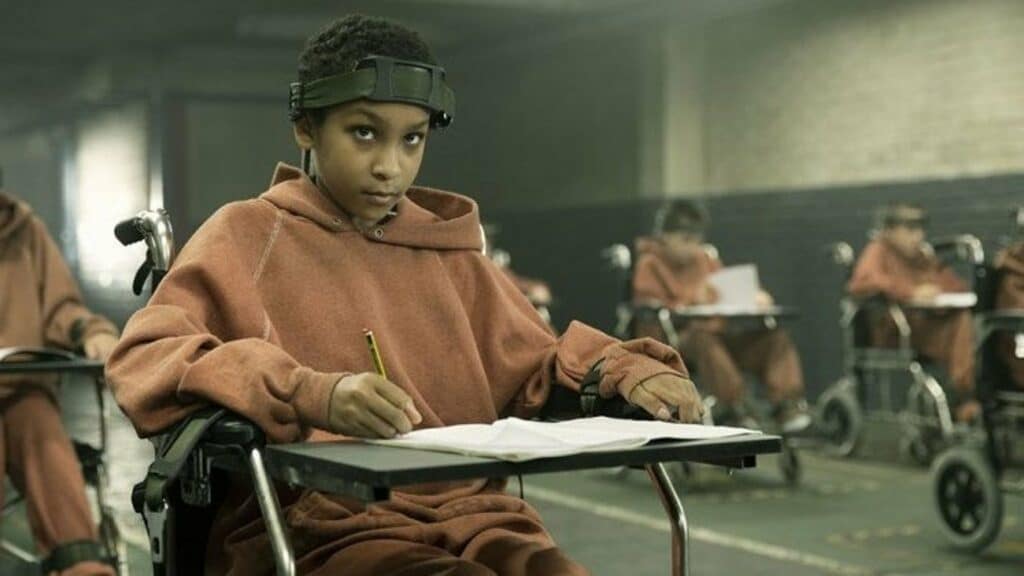
Abilities
Another way to make your zombie creatures stand out is to give them different traits or abilities. This is something you can have a lot of fun with. Moreover, it can add a new element to your film that drives the storytelling. New abilities could make your creatures scarier or more sympathetic depending on which route you go down.
Some examples include:
- Warm Bodies. In this movie, when the zombies eat brains, they inherit the memories of their victims. This makes them feel guilty as they are forced to see the humans as more than just a meal, but people.
- And in The Dead Don’t Die the zombies gravitate toward the things they loved when they were alive. So there are zombies playing tennis and drinking coffee, and child zombies robbing sweet shops. It throws in an element of comedy, whilst adding an element of characterisation to each zombie.
You might also, for instance, think about giving the zombies abilities that make them more of a challenge for the human characters to defeat, raising the stakes even higher and capturing the audience’s attention.
3. Finding Your Angle
To write a good zombie movie, it isn’t always necessary for it to have an underlying meaning. But to write a truly original zombie film, you might consider what you would like your zombie outbreak to represent.
What are the real-life parallels? What does your zombie outbreak reveal about the society depicted in the film?
4. Flipping the Script
Zombie movies often follow a certain formula; zombies take over, kill humans, and humans must kill zombies to survive. We rarely see the other side of the story. This is probably because zombies usually have very basic levels of intelligence, relying mostly on primal instincts (i.e. “eat brains”).
Most importantly, they rarely have the ability to speak, having to resort to grunts and moans to communicate. This means the narrative generally focuses on the human characters and the humans are generally the heroes of the story.
However, to write an original zombie movie why not flip the script? Why not write from the perspective of the zombie, for example? Writing originally requires you to subvert the norms of what you’re used to seeing.
A handful of zombie films have broken the mould in this way:
- The main character of Warm Bodies, for instance, is a zombie called R. He narrates the film with a witty inner monologue. His brain seems to be fully functioning other than his lack of human memories, and he has a conscience. However, R can only speak in grunts and broken sentences for the majority of the film.
- In The Girl With All the Gifts, the story focuses on one of the zombie children, Melanie, who can speak and loves to learn. She even writes stories. Melanie offers a completely new perspective when, in the end, she decides to release the ‘pods’ containing the virus. This is after she realizes that the only hope for stopping the virus is the second generation of zombies, who can all think and learn like humans. When Melanie realizes she is alive, she asks, “Then why should it be us that die for you?”
5. Sub-Genres
Most original zombie movies have a sub-genre. This makes it easier for them to stand out. If a film doesn’t have a sub-genre, or a purpose other than a bunch of zombies and humans killing each other, it can quickly become tiresome. Having a genre sets the tone and atmosphere of the film so that the audience takes away from the film what the screenwriter intended.
There are many different ways a writer can approach this. Below we’ve laid out some of the most typical and successful sub-genres:
Comedy
Comedy can lighten the tone of what could be a pretty bleak screenplay, and make it more marketable to a wider audience. There are also a variety of ways to add a sense of humor to your zombie script; for instance, you could use slapstick comedy or, on the other end of the scale, a more subtle and witty sense of humor via dialogue or action.
- Shaun of the Dead, for example, uses a bold, often morbid sense of humor, evidenced in the dialogue but also in much of the action. This is seen, for example, when the protagonists bicker over which vinyl records to throw at the zombies. The zombies themselves in this film are very slow and unintelligent, typically adding to the comedic elements in the way that the human characters interact with them.
- Zombieland, meanwhile, is a witty comedy that uses a sharp and dry sense of humor that doesn’t take away from the more serious aspects of the film. Although there are some gruesome moments, it is the comedy that the audiences remember Zombieland for. There’s a slapstick, comedic tone as well as comedic dialogue, heightened by the film’s slick style.
Writing a comedic zombie movie potentially broadens the audience from only horror/zombie movie fans. Even if you choose not to make comedy the sub-genre, comedic relief can do wonders for any screenplay. So it’s worth thinking about how you might throw in comedic elements to ‘liven’ it up.
The fact that zombie movies are so well-tread means that there are a plethora of tropes to play on. So you can use the familiar elements of zombie lore and subvert them with a comedic edge.
The Zombie Romance
A zombie-human relationship is harder to romanticize than the ever-popular human-vampire love story. However, when done right it can be an engaging way to give the zombie movie a strong and appealing narrative arc.
Romantic zombie movies are likely to broaden audiences, and this kind of forbidden romance can be an intriguing twist. The seemingly contradictory themes are a great way to make a zombie movie feel more original.
- Warm Bodies, for example, manages to successfully navigate the zombie-romance hybrid. The film is witty, seen via the awkward flirting throughout the film – as you would expect from a zombie. Warm Bodies is a Romeo and Juliet story, with the characters’ names even inspired by the star-crossed lovers. However, it is clearly a fresh take on the narrative. Moreover, the fact that R’s love for Julie is ultimately the cure for his affliction makes the audience root for the couple even more.
- Little Monsters, meanwhile, is more of a raunchy romantic comedy. Dave falls for a school teacher but his plans to seduce her are interrupted by a zombie invasion. The film is gory and the jokes are crude. However, the romantic plot line gives Dave an intention from the start and it is what sets off his character development throughout the movie.
Romance can be a guide for the script if you want to have more lighthearted moments. However, it doesn’t always mean sacrificing the gorier aspects of a zombie film. If you’re looking for a way to write an original zombie movie, using elements of the romance genre can be a good way to give your screenplay a more approachable and discernible structure than a traditional, straightforward humans vs zombies narrative arc.
The Zombie Heist Movie
This genre hybrid, whilst rare, is a brilliant way to give your characters motivation. What better reason for your characters to risk being mauled by zombies than to make a few million dollars? Including these kinds of real-world motivations in your zombie movie is likely to add depth to your characters and plot line.
Writing your zombie movie as a heist film can also give an excuse to throw a bunch of opposite characters together and see how each responds to being chased by the undead. In fact, for instance, it was Deiter’s hilarious reactions in Army of the Dead that resulted in the prequel following his backstory a few years prior.
This could also be a way to raise the stakes even higher, keeping viewers on the edge of their seats. It gives motivation to your characters other than just survival, which is the familiar territory of most zombie movies. Instead, it throws up more potential obstacles for your characters, making the zombies one part of a multi-faceted threat and goal.
Zombie War Movie
One way to write an original zombie movie is to relate your film to something we are all familiar with: cultural trauma. Many writers have used catastrophic moments in history, for example, as a backdrop for their zombie screenplays.
In this light, zombie war films are a popular genre, with many writers choosing to set their movies in the Second World War, for instance. While some of these films can easily venture into parody territory with lazy execution, there are successful examples.
- Dead Snow, for example, features a group of medical students who encounter a leftover Nazi bunker from WW2 where they find a group of Third Reich zombies.
- Overlord, meanwhile, depicts a group of WW2 soldiers who discover that the Nazis have been working on a zombie virus to combat the allies.
These films work, in part, because they feel rooted in the details of the historical context, with at least some research to back up the story.
There is also, for example, Marc Forster’s World War Z, an epic zombie war film set in contemporary times. The film depicts the zombie virus as more of a pandemic, highlighting societal and governmental responses that chime with modern preoccupations and concerns.
Zombie movies set in the context of war provide another opportunity for the use of zombies to say something meaningful thematically. The zombies ideally add something metaphorical that a normal depiction cannot achieve. The fantasy element allows for the imagination to wander outside the typical confines of the context and consequently attain something different and distinct thematically.
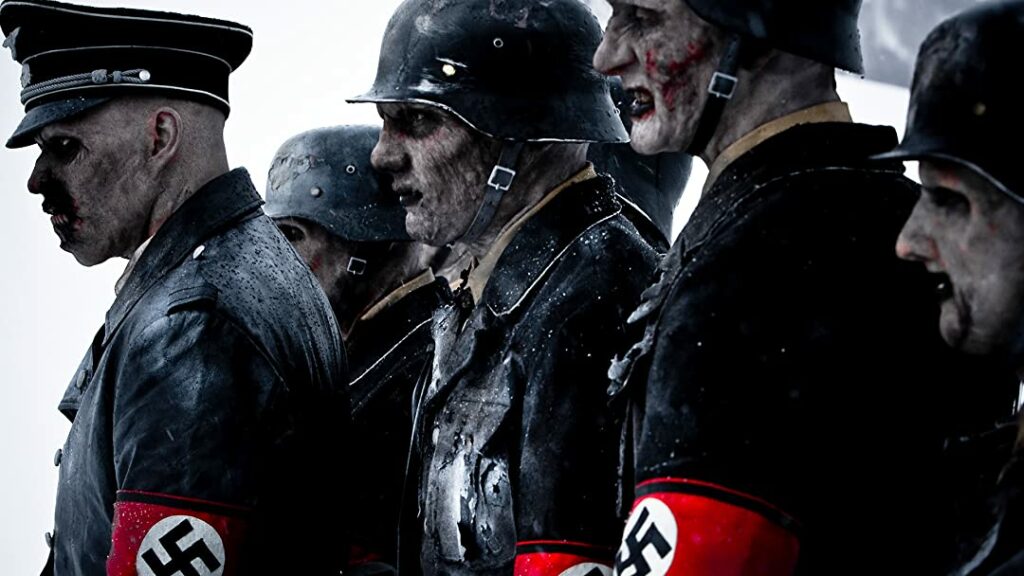
6. Subplots
To prevent cliche, it is also important your characters have substance. And one way to give them substance is to include subplots.
- In Army of the Dead, for example, Scott Ward juggles killing zombies with trying to fix his relationship with his daughter and rekindle the chemistry with his supposed former-love interest, Maria.
- Throughout the film, the characters are also contemplating what they will do with the money in the end (Scott thinks of opening a food truck, for instance). It is this attention-to-detail that gives us more of an idea of the characters’ personalities outside of being zombie killers.
This kind of depth in characterisation allows the story to be about more than just the zombie antagonists or the novelty of a zombie presence. Unique character relationships give the story distinction. Moreover, unique circumstances also give the story distinction. What is driving the protagonist outside the zombie threat? If the zombies weren’t present, what would still be the driver of the story?
Take Shaun of the Dead as another example.
- The story is concerned with the state of Shaun’s life as much as it is the zombie threat.
- Without the zombies, the film would still be quite similar in terms of the characters’ backstories, motivations and concerns. But clearly, the added zombie element heightens the stakes for Shaun to get his life together.
It’s often in the texture of subplots that a movie gains its most memorable and unique elements, particularly in the case of a familiar and well-tread genre.
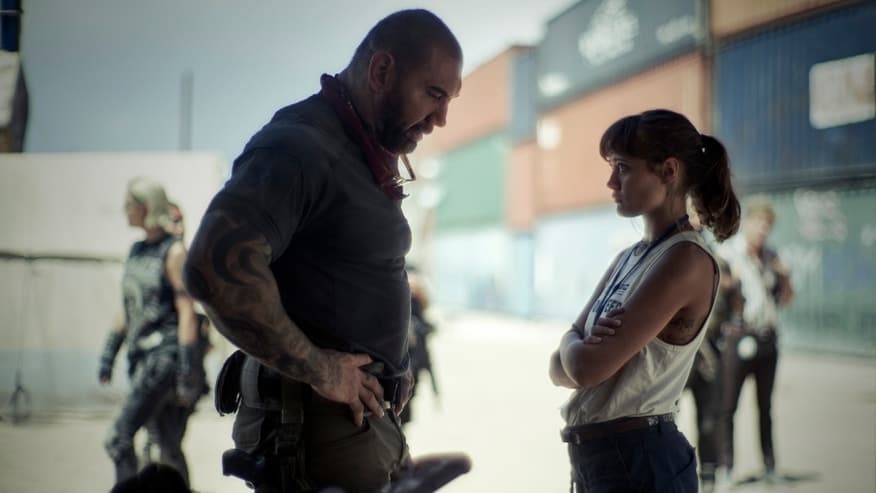
7. Finding Your Protagonist
A good protagonist(s) is important in writing any screenplay. The audience needs a reason to root for your main character and this is especially the case in the context of facing a huge, existential threat.
In World War Z, for example, Gerry Lane is a former UN field agent with a wife and two daughters. The fact that he is a family man makes the moment he decides to inject himself that much nobler. This isn’t to say your protagonist has to be inherently good or self-sacrificing, but it helps your audience to have a reason to sympathize with them.
You might also want to ask whether your protagonist is going to be a human or a zombie. As stated before, flipping the script and making the zombies the sympathetic characters can be a way to make the story feel more original.
Once you have decided who your main character will be it is important to ask these questions:
- What makes them different?
- What do they stand to gain/lose in the outcome of the zombie apocalypse?
- What are they truly fighting for?
The best protagonists in zombie movies are almost always willing, at least in the end, to sacrifice themselves either for those they care about or for the world as a whole. And they are always active protagonists. They take action that affects the outcome of the film, rather than letting the events happen to them.
Another option is the ‘anti-hero’ protagonist, like Melanie in The Girl With All the Gifts. She is ultimately responsible for the eradication of the human race. However, we have also seen events from Melanie’s perspective and, therefore, while we might not agree with her actions, we understand them.
8. Setting Your Zombie Movie
The setting is crucial to writing an original zombie movie. The time and place of your story can set your film apart even if the other ingredients are somewhat familiar.
Time
The when of your film can say a lot. Setting your zombie movie in the present day, for example, can increase the fear factor because the events that unfold happen in a time period that is familiar to the audience.
It makes it easier to imagine what would happen if something so catastrophic happened in our lifetime. It also gives the audience something to relate to; especially when there are references to the politics and pop culture of our time. Take Army of the Dead again, where, for instance, a YouTuber becomes famous for killing zombies, or the characters discuss the surge of veganism.
In The Girl with All the Gifts, shops such as Next and Marks & Spencer appear; closed and run down. It makes the film even eerier. It is frightening to imagine what would happen to our present-day lives if they were suddenly interrupted by a zombie invasion. And the contemporary references make this possibility feel all the more real.
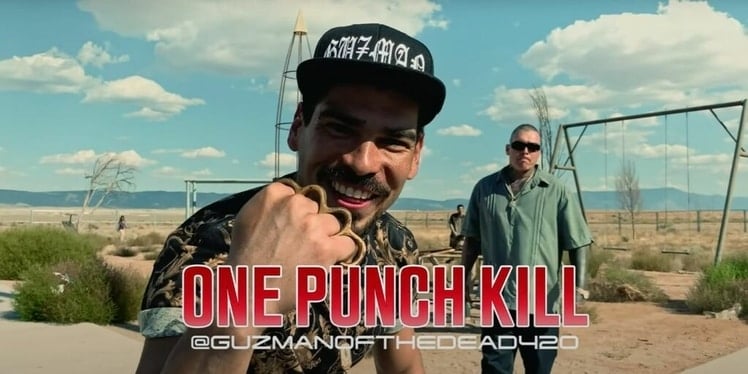
However, setting your zombie movie in the past opens up many options too. Imagine a zombie outbreak, for example, in 1950s America or Victorian Era Britain. What themes would this bring up? What characters and contexts could you explore?
This is, again, all about attaching unique elements to the purpose of your zombie film. What do you truly want to say and how does the setting play into that? What could zombies bring out in a historical context that no other element could?
Location
Location is another key factor in writing an original screenplay. The where of your film will create a specific atmosphere and chime with what you want it to convey. Some examples include:
Small Town
Small-town settings can create a sense of isolation. There is a perception of ‘no-escape’ in these types of films. This, in turn, means it feels there is also more chance of your main characters being killed. The atmosphere will thusly be one of eerie tension, the humans alone in their fight and estranged from the comfort of a functioning human landscape.
Which country you set your zombie movie in is also important; a small town in America is going to be vastly different to a small town in Japan, for example. How does each setting react and how might these reactions differ from one another?
Exploring these questions will again lead you to originality, encouraging you to think about the distinct aspects of how your characters will respond to the zombies and consequently what the story’s direction will be in the context of the setting.
Zombie movies set in a small town include:
- The Dead Don’t Die, set in rural Centerville, Pennsylvania
- Brain Freeze, which is set in a gated community on ‘Peacock Island’.
Big Cities
Setting a zombie movie in a big city can also create a sense of no escape, albeit in a different way. In a small community, at least the virus is isolated. In a big city, no one is safe. Big cities are popular places to set zombie movies, probably because they are usually full of life that seeing them be overrun by the undead is a huge contrast.
Places such as London, New York, LA and Las Vegas, for instance, are often the settings of zombie movies. The iconic imagery of these cities coupled with seeing them deserted can create memorable and striking visuals.
- I Am Legend, for example, is set in New York and in it, the zombie virus has affected most of mankind. However, the film is more of an epic adventure than those set in a small town because the stakes are so much higher.
- Army of the Dead is filmed in Las Vegas; a city bustling with life. Seeing the run-down casinos and once lavish hotels creates an atmosphere of despair. This is also an opportunity to include unique detail and the zombie tiger that once belonged to Siegfried and Roy acts as a brilliant example of this here.
Overall, think carefully about where you want to set your film and why. Is it important that your film centres on a large-scale zombie attack in New York? Or would it be more effective to set it in a small village in the countryside?
It just depends on what kind of story you want to tell, what you want the tone to be and what message you are ultimately trying to convey about your story’s setting.
Creating an Original Zombie Movie: Where to Start?
There’s no getting around the fact that the zombie genre is oversaturated. So if sitting down to write one, the first things to ask are: what makes your zombie movie different to all that have come before it? And what do you want your screenplay to say?
Once you know the answers to these fundamental questions, you can start creating your backdrop, building your zombies, and developing your protagonist(s). And you’ll be doing so from an altogether more original position.
Creating an original zombie movie often means thinking outside of the box. Your zombies don’t have to match specific rules; they can have any appearance you want, and any abilities you can imagine. They don’t even always have to be the bad guys. Flipping the script in this regard, for instance, can be a great way to make your zombie movie unique.
A key thing to remember when writing a zombie movie is that there are few limitations. Overall, this is a genre with boundless crossover potential and with many unexplored possibilities. Audiences want to be surprised by a genre that they will be familiar with but may still crave.
The rules feel rigid but they are in fact, the opposite. Ultimately, if you can find a way to say something new, even with familiar components, you will be on your way to writing an exciting and original zombie movie.
–What did you think of this article? Share It, Like It, give it a rating, and let us know your thoughts in the comments box further down…
– Struggling with a script or book? Story analysis is what we do, all day, every day… check out our range of script coverage services for writers & filmmakers.
This article was written by Lauren Dunlop and edited by IS staff.
Get *ALL* our FREE Resources
Tackle the trickiest areas of screenwriting with our exclusive eBooks. Get all our FREE resources when you join 60,000 filmmakers on our mailing list!

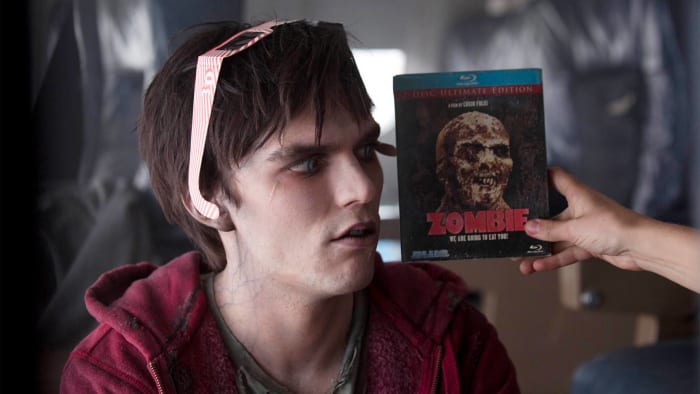
Dead Girl and Make Out With Violence are perhaps the best reimaginings of the zombie flick without overdoing the standard tropes.